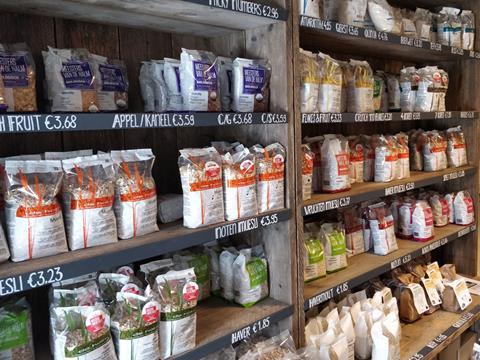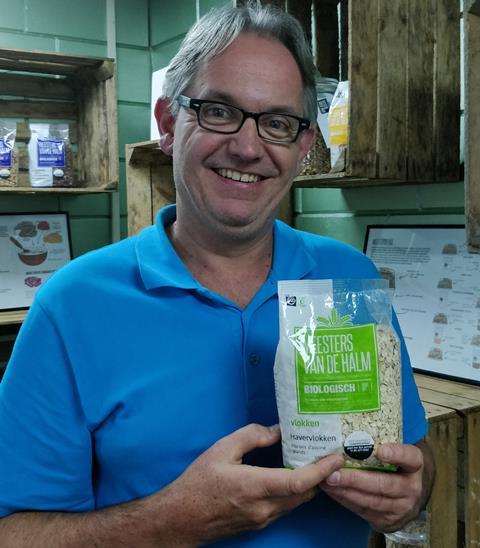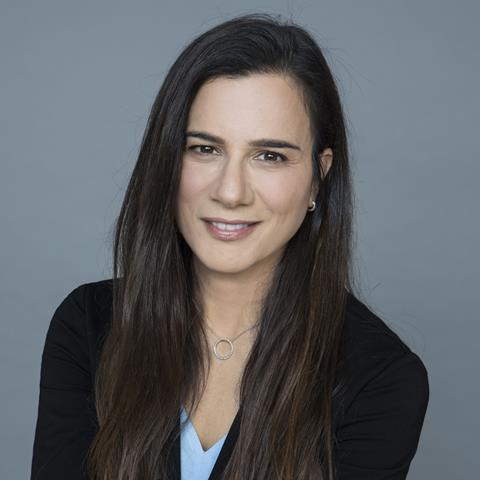
Bio4pack and TIPA, already established partners in the Netherlands, were exactly what organic grains company, De Halm, was looking for. Together, they were able to develop a compostable packaging solution, and a long-term relationship, that has proven to be an overall success.
It seemed like fate, the partners recall. A moment of perfect timing where three companies, all engaged in the same endeavour of compostable packaging, were matched up by more than pure chance. As partner of TIPA, Bio4pack compared other sustainable, flexible packaging companies, and found TIPA offered the seal ability and transparency, and overall performance that Meesters De Halm had been seeking for years. In fact, Rob van den Berg of De Halm said they, Bio4pack and De Halm, had been looking for the perfect compostable package for five years before discovering TIPA’s films.
Patrick Gerritsen of Bio4pack, and a sustainable packaging expert, lead the project with De Halm, and said it was more of a trial and error of sandwiching different materials before finding the right film that would perform perfectly. He emphasised that “persistence is the key to success. We did not succeed in the beginning, and attempted numerous times before achieving the right performance.”

TIPA’s films offered the specifications needed to make Bio4pack’s laminates transparent and durable, with the requested shelf-life. Rob highlighted: “the transparency and the machinability of the Bio4pack Laminate was particularly appealing – it was more transparent than starch-based films.” Besides the aesthetics of the package, which were also crucial, De Halm’s specifications had to meet certain criteria in order for their packaging to be compostable, and not recyclable.
The package itself consists of a-two film, fully compostable laminate that outcompetes comparable bioplastics on the market with superior transparency. The laminate has similar strength and transparency compared to regular polypropylene and polyethylene found in conventional plastic, but the package also features a carry weight of up to 750 grams due to excellent seal ability and hot tack.
TIPA, Bio4pack and De Halm share an understanding of the permanent implications non-recyclable, flexible plastic packaging has on the environment. “While not all plastics are created equal, it is especially difficult for flexible plastic packaging,” said TIPA’s CEO and co-founder, Daphna Nissenbaum. “As awareness grows, we are more capable of discerning the severe recycling challenges associated with multilayer flexible plastic packaging without some prior separation process. Because laminate materials are usually sent straight to landfill or incinerated, they have limited value post usage.”

With mutual understanding, TIPA, Bio4pack and De Halm believe that small changes can make a greater impact on a larger scale. There is a lot of scope for improvement in terms of current infrastructure and awareness. Daphna quotes the Ellen MacArthur Foundation, which has found that 14 per cent of plastic packaging goes straight to landfills, and another eight million tons are lost via leakage into the marine environment each year. She summarises: “Mankind should only use packaging that can integrate with nature - decompose and become a resource.”
This is sponsored content.












